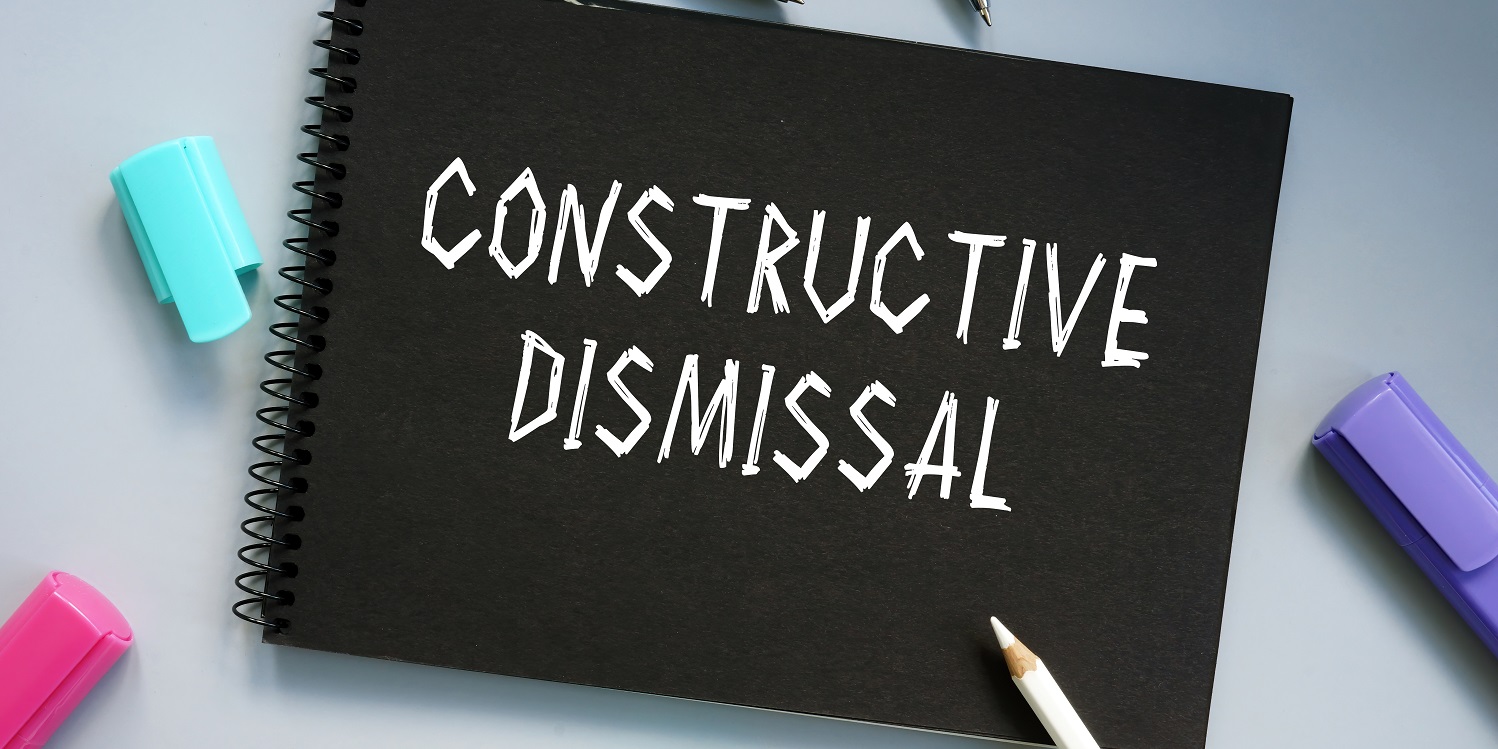What does constructive dismissal refer to and who can claim it? JMW Solicitors' Head of Employment Law, Paul Chamberlain explains how employers should respond to claims and how to better protect the business against constructive unfair dismissal claims from occurring.
What is constructive dismissal?
A constructive dismissal arises when an employee resigns in response to a fundamental breach of an express or implied term of their employment contract, by the employer.
An employee will need to establish the following elements to be successful in their claim:
- There must be a fundamental breach of contract by the employer. This may be an isolated breach that is serious enough to warrant the employee to resign. Or it may be a series of related acts leading to a “final straw”;
- The employee must resign in response to the fundamental breach; and
- The employee must not delay too long in resigning following the breach, as this may lead to an inference that the employee has waived the breach.
Who can claim constructive dismissal?

A person can only submit a claim for constructive unfair dismissal if they meet the following eligibility criteria:
- Employment status: The right to bring a claim for constructive dismissal is restricted to employees only. A genuine casual worker, or self-employed person, is unable to bring this claim. However, be aware that there are a range of rights that apply to casual workers and that people employers classify as workers or self-employed may actually be employees.
Learn more: What is the difference between a worker and an employee?
- Length of service: An employee will need two years’ length of service to bring a claim for ordinary constructive dismissal, just as they would for any type of ordinary unfair dismissal
- If the employee’s resignation relates to a prescribed reason, such as making a protected disclosure (i.e. whistleblowing), this dispenses with the requirement for a qualifying period of service.
What amounts to a fundamental breach of contract?

In order to successfully claim constructive dismissal, an employee must resign in response to a fundamental breach of contract by the employer. The breach should be significant and go “to the root of the employment contract”, which was confirmed by Lord Denning in Western Excavating (ECC) Ltd v Sharp.
Express and implied terms
The breach itself may relate to either an express or implied term of the employee’s contract. An express term is generally a written term and can be found within the employee’s contract; for example, the right to receive their salary or wages.
An implied term is one which is implied into the employment contract by common law or legislation. The implied term commonly relied upon by employee’s claiming constructive dismissal, is the breach of mutual trust and confidence.
Examples of fundamental breaches
Examples of fundamental breaches of contract that an employee may seek to rely upon include:
- Subjecting an employee to an excessive workload, which causes damage to their health, including work related stress
- Failing to deal with allegations of discrimination during the course of their employment
- Making changes to the employee’s pay or job role without their express agreement or consulting with them
- Failing to address serious issues of workplace bullying and harassment
- Inadequate handling of disciplinary and/or grievance processes
Is the timing of the employee’s resignation relevant?

The employee must be able to provide evidence that they responded to the employer’s breach. It will strengthen an employee’s claim if they resign shortly following the fundamental breach that they are relying upon.
Where an employee delays before submitting their resignation, it will be open for the employer to argue that the breach was affirmed/accepted by the employee because of their delay in resigning.
Is an employee required to raise a grievance before resigning?

There is no requirement for an employee to submit a grievance or exhaust their employer’s grievance procedure before resigning from their employment. It is therefore possible that an employee could resign without formally raising the issues that led to their resignation and still submit a claim for constructive dismissal.
However, if an employee’s claim is successful, the Employment Tribunal will consider this when determining the level of compensation that should be awarded. In accordance with the Acas Code of Practice, an employee’s unreasonable failure to submit a grievance may lead to a reduction in their compensation by up to 25%. A failure to submit a grievance will not however lead to an automatic reduction, and the Employment Tribunal will need to consider the employee’s reasons.
Learn more: Employment tribunals: the costs for employers
What should you consider if an employee brings a claim for constructive dismissal?
Acas Early Conciliation
It is mandatory that an employee contact Acas before they submit an Employment Tribunal claim and they must obtain an Early Conciliation Certificate. An employer should therefore assess whether the employee validly complied with this requirement.
Time limits
Assess whether the employee has submitted the claim within the requisite time limit. When bringing a claim for constructive dismissal, an employee should submit the claim within 3 months less one day of their effective date of termination i.e. the date on which they resigned or the final day of their notice period, if they worked it.
If the employee fails to comply with this requirement, they will need to evidence why it was not “reasonably practicable” for them to do so.
Prospects for success
An employer should consider whether they intend to fight or settle the claim, taking into consideration the prospects of successfully defending the claim, including the risk of any potential reputational damage.
Legal costs
An employer should estimate and budget for the legal costs that may be involved in responding to and defending an Employment Tribunal claim. This amount will be dependent on the complexity of the case.
Management time
In addition to legal costs, an employer should consider the potential management time involved in defending the claim. For example, witnesses and HR will need to spend time outside of their operational roles to assist with gathering relevant documents, preparing witness statements, and giving evidence at the Tribunal hearing.
Reduce the time you spend on HR admin and have the documents you need at your fingertips with secure document management software.
Policies and procedures
Review internal policies and procedures to identify whether any amendments are necessary to ensure that employees are aware of the internal processes to follow in order to raise concerns.
What compensation could an employee receive for a constructive dismissal claim?

If an employee is successful in a claim of constructive dismissal, they may receive a damages award comprised of the following:
Basic award
The basic award is a statutory award that is calculated based on factors including the employee’s age, age at the date of termination and their length of service. The basic award is subject to a cap of £16,320 as of 6 April 2021.
Compensatory award
The compensatory award seeks to compensate the employee for the losses that the employee has sustained because of their dismissal. For example, loss of wages for periods of unemployment following the resignation. The compensatory award is subject to a cap of the lowest of either £89,493 or 52 weeks gross salary as of 6 April 2021.
As discussed previously, the employee’s compensatory award may be reduced if they have unreasonably failed to comply with the Acas Code by failing to raise a grievance.
In contrast, if the employer fails to comply with the Acas Code (for example by not following a fair procedure), then the employee’s compensation may be increased by up to 25%.
Read more from the myhrtoolkit blog
Wrongful dismissal: how is it different from unfair dismissal?
.jpg)
Written by Paul Chamberlain
As head of JMW’s Employment team, Paul has 25 years’ employment law experience - law relating to recruitment, advising and providing training on employment status issues, Agency Workers’ Regulations, GLAA, Working Time Regulations and industry-specific regulatory compliance.


 Holiday Planner
Holiday Planner Absence Management
Absence Management Performance Management
Performance Management Staff Management
Staff Management Document Management
Document Management Reporting
Reporting Health and Safety Management
Health and Safety Management Task Management
Task Management Security Centre
Security Centre Self Service
Self Service Mobile
Mobile



